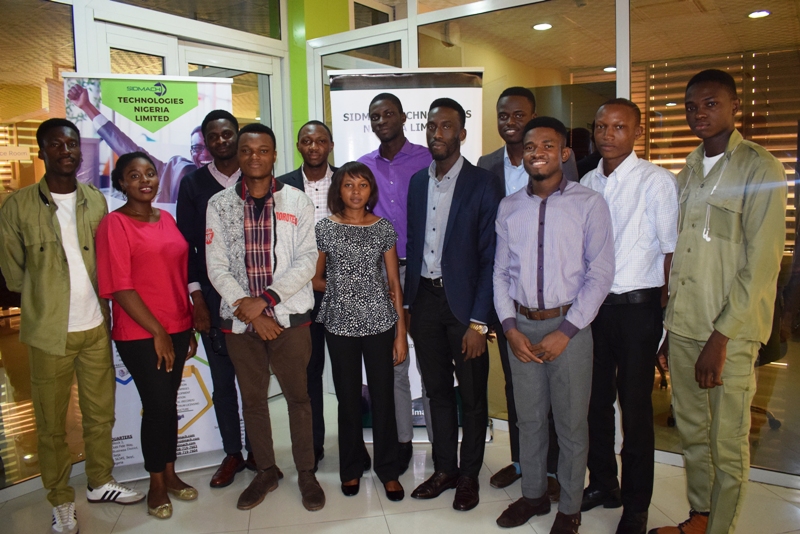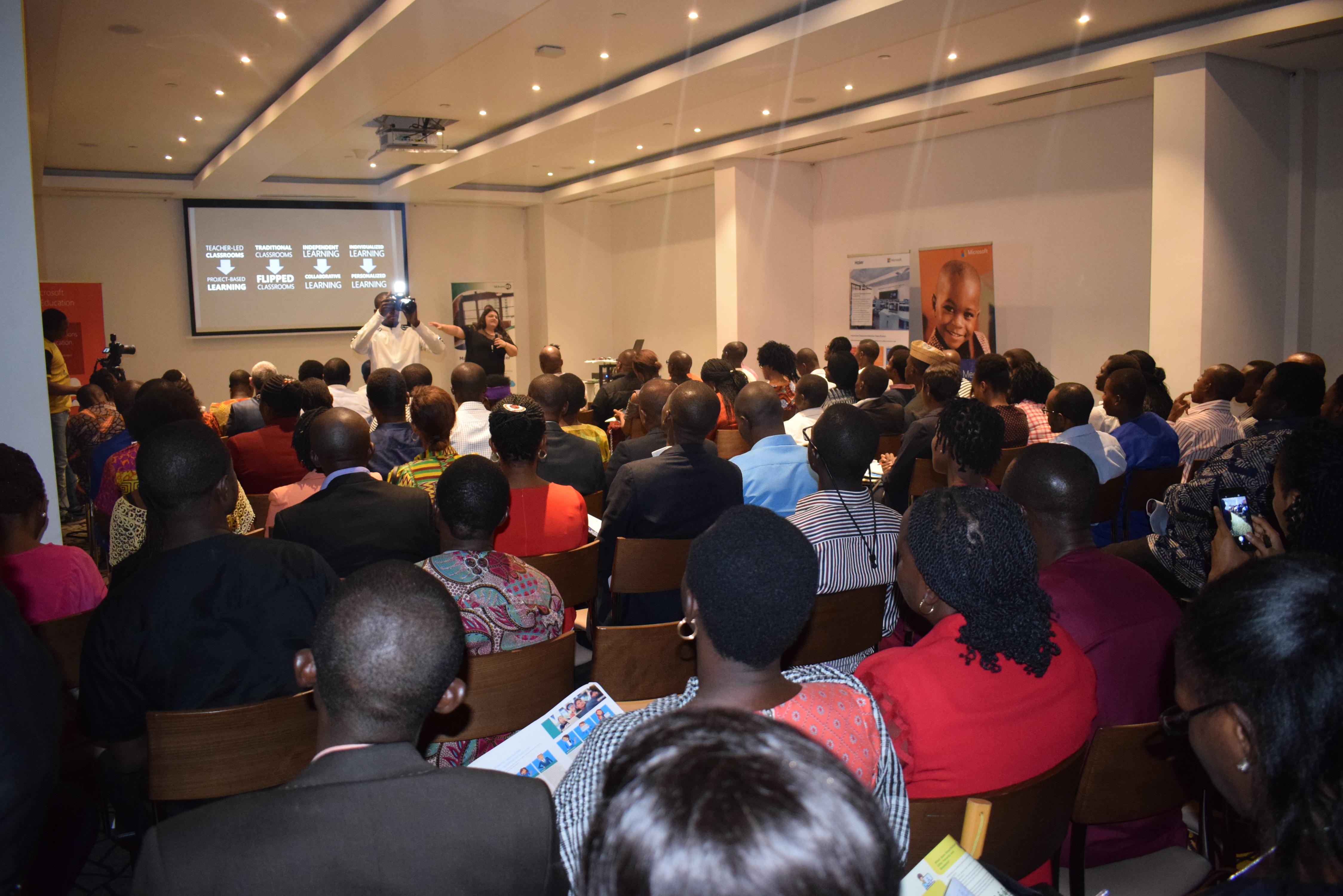Education
Edustat Offers EdTech Stakeholders What SpaceX Engineers Found during Starship Rocket Launch
Article by: Peter Oluka (@peterolukai)


Elon Musk’s SpaceX’s Starship rocket — which could one day carry humans to the moon and Mars — made it some four minutes and 24 miles into the sky before it exploded during its inaugural test flight last Thursday.
And yet, even as they watched the world’s largest rocket burst into a fireball, SpaceX engineers still roared with cheers and applause.
The launch was hailed as “a real accomplishment” and “so successful”.
Why?
“With a test like this, success comes from what we learn, and today’s test will help us improve Starship’s reliability as SpaceX seeks to make life multi-planetary,” SpaceX later tweeted.
SpaceX said before the mission that “any data it yielded would be valuable as long as the rocket cleared the launch pad” — which it did.
This is where the lessons come from – SpaceX engineers went for the ‘data’, not necessarily for the Starship Rocket to hit the moon and/or Mars on the first launch. Now they have the data, expect them to be more accurate in the next launch!
The Need for accurate data:
Data helps a company redefine its strategy, increase their revenue and profits by making the company more efficient, providing key insights into operations and customer satisfaction and helping to improve certain processes.
Data can help businesses measure whether certain actions, products or services are profitable and where their greatest expenses might be. Identifying expenses is often the key to increasing profits because businesses can reduce those expenses and keep more of the revenue they earn. Raw data helps the company identify where it can trim expenses, increase efforts and earn more revenue.
Again, that is why stakeholders in the education sector in Nigeria were full of praise for the West African Examinations Council (WAEC) and its technology partners, Sidmach Technologies, following the development of Edustat platform.
I tell you why: Data plays a critical role in problem-solving for company leaders. With an abundance of data, company leaders can identify and address key problems and monitor the effects of proposed solutions.
Solving problems can be much easier and solutions are more effective when the person solving that problem has sufficient information. Understanding the problem in its entirety is typically the first step toward solving that problem.
That is why the SpaceX team didn’t bury their heads in sand when the Spaceship Rocket ‘failed’. Are you in the EdTech space in Nigeria? Edustat presents you with a dataset to rave-up your products/services.
Edustat is a data and Artificial Intelligence-driven analytics platform that offers rich and unique smart statistical insights into education and assessment in West Africa using historical and current data to provide detailed intelligence for stakeholders across the globe in a smart and easily accessible manner. It offers a variety of rich, interactive educational assessment statistics, and insights, in graphs, summaries, tables, trends and interactive dashboards for intelligence, research, and informed decision-making in just a few clicks.
WAEC, in partnership with Sidmach, developed Edustat with ease of use in mind. So, it was built for users to easily sign up, and select the kind of report or intelligence they seek, with an array of filters to filter down the expected result by age, gender, demography, and even special needs amongst many other options of filters.
Values Edustat offers users
Everyone can benefit from Edustat, but let’s highlight a few: Researchers/academics (PhD students, professorship, masters) – We all know it is usually difficult to access accurate data that cover education statistics in gender, disabilities, regions, male/female and other indexes. Researchers will have cause to smile because Edustat contains more than just statistical numbers; you are assured of infographics.
The team infused a summary of any insight or report you generate using Artificial Intelligence (AI) tools.
The opportunities are numerous. Governments at all levels – Federal, State, LGA; MDAs, are welcome to use Edustat.
For instance, the Ogun State Government wants to assess the state’s performance in SSCE over the years. They can compare their State with other States for developmental planning, and interventions (in case the students are not doing well in certain subjects like English, Mathematics, etc).
A State Government that pays WAEC fees its students would cherish having accurate data on their performances.
Funding Agencies – The World Bank, UNESCO, DFID, etc., who are looking for reliable data for interventions for scholarships, erect classrooms/ this will help for informed decisions.
Schools are not left out. Schools would want to know how they perform in WAEC; maybe for the bragging rights of 9As or other achievements. This will help them compare with other schools. They can track how their female students are performing; how the students (generally) are doing per subject; juxtapose their performance to others.
The team really worked hard to integrate AI Predictive Modelling, so schools shall be able to predict how students will perform in future high school assessments – known as WAEC school exams.
Also, Parents who moved to new locations do not know which School to pick for their kids. Worry not; you can assess schools’ performance in WAEC through Edustat.
Private Corporate/Individuals – Any company that does anything on Education like Edcent, uLesson, Edusko, will help them build, and scale up their products, contents, or solutions around subjects.
They can ascertain how candidates perform in each subject in real time.
It is a web-based application for now, but it can be assessed from any device, Laptop, Phone, Tablet etc. It is adaptive to any device and provides everyone with the same experience across all devices.
Edustat offers Pay Per Report. What that means is that you only need to pay for the insight/report you are seeking per time.
But again, with the ease of use in mind, the team built the product with a wallet system which allows users to fund their wallets with sufficient funds which allows them to pay for the statistics/reports/insights they seek by drawing funds from their funded wallet automatically.
So, what are you waiting for, sign up on Edustat (https://waec.edustat.ng/) today!
Education
South East Educators Conference (SEEC) 2025 Set to Transform the Future of Education in Nigeria
“…SEEC 2025 will equip every stakeholder to not only adapt to change—but to drive it,” says Barr. Doris Chinedu-Okoro.


A new wave of educational transformation is coming! The highly anticipated South East Educators Conference (SEEC) 2025 is set to take place from May 2nd to 3rd, 2025 at the prestigious Nike Lake Resort, Enugu, under the powerful theme: “Advancing Education: Innovation, Leadership & Transformation.”
Barr. Doris Chinedu-Okoro, Convener of SEEC, said this year’s edition promises to be the most impactful yet, gathering a dynamic blend of visionaries, thought leaders, innovators, educators, and policymakers to drive conversations, collaborations, and commitments that will shape the future of education in Nigeria and beyond.
Keynote Speakers
The Convener said the keynote speakers include; His Excellency, Senator Liyel Imoke – former Governor of Cross River State and Founder, the Bridge Leadership Foundation and a statesman passionate about youth development and sustainable leadership, is among the pious keynote speakers.
Also, “Mr. Paul Onwuanibe – CEO, Landmark Group – a trailblazing entrepreneur whose insight into innovation and infrastructure development will challenge educational stakeholders to think big and build boldly”.
Other Speakers include;
Rotimi Eyitayo – CEO, Teammasters & Education Business School, Chinoso Ogbogu – Co-Founder, Sabi Writers, Rhoda Odigboh – Education Thought Leader & Regional Director Kizazi, Dr. Joy Isa – President Isa School Of Education & Educational Strategist, Fisayo Oludipe – Education Consultant & Leadership Coach, and Susan Charles – Learning Innovator, Moyo Lifematics – Mathematics Educator & Content Creator, Eben Odetola Israel – EdTech Advocate, Mr. Ogunsola – STEM Educator, and Yinka Ogunde – CEO, Edumark Consult. “…and many more voices of influence across Africa’s educational and leadership landscape!”
Highlights to Look Forward to:
“Gala Night – A celebration of brilliance, impact, and community; Movie Night – A night of reflection and bonding through storytelling; Educator Awards – Honoring those who go beyond the call of duty to inspire change; Breakout Sessions & Masterclasses – Practical, hands-on learning experiences, and Exhibitions & EdTech Showcases – Featuring tools, innovations, and solutions for the future-ready educator.
“SEEC 2025 is not just a conference. It is a movement—a call to action for educators, school owners, government stakeholders, parents, and youth advocates to come together and reimagine the future of learning, teaching, and leadership in Africa.
“We believe education is the engine of national development. SEEC 2025 will equip every stakeholder to not only adapt to change—but to drive it,” says Barr. Doris Chinedu-Okoro, added.
To participate at SEEC2025, register via the link and secure your slot. www.southeasteducatorsconference.com.
Follow the conversation online using #SEEC2025 and tag us @southeasteducationconference on all platforms. For sponsorship, media partnerships, or exhibition opportunities, contact us at [email protected]
Education
Enugu Govt to Boost Infrastructure at Nigerian Law School


… As Mbah canvasses higher admission quota for ESUT Law Faculty
The Governor of Enugu State, Dr. Peter Mbah, says the state government will soon commence the construction of an ultramodern auditorium for the Augustine Nnamani campus of the Nigerian Law School at Agbani in Enugu State, stressing his administration’s readiness to support the campus to excel as a citadel of legal education in Nigeria.
Mbah made this known when he received a team of the Council of Legal Education at the Government House, Enugu, on Monday commending the Council for its work in guiding and nurturing teaching and learning in the Law School.
The governor, who was represented by the Deputy Governor, Barr. Ifeanyi Ossai, equally canvassed for an increase in the admission quota of the Faculty of Law, Enugu State University of Science and Technology, ESUT, to create more opportunities for the increasing population of the state’s indigenes and residents wishing to study Law.
“Quite frankly, the expansion in the number of campuses of the Law School makes their management and coordination more challenging, but that is inevitable because of the increasing number of our brothers and sisters, who seek to become lawyers.
“I want to assure you that with respect to the commitment of our government and our state to enhance the facilities at that Law School, Agbani, the date for the groundbreaking ceremony for the auditorium will be communicated to you sooner than you would imagine.
“This is also an opportunity to request that you consider increasing the admission quota of the ESUT Faulty of Law because of the teeming number of our people that want to study law. On our part, we are determined to put all necessary infrastructure and human capital in place to make it one of the best Law faculties in the entire country because in Enugu, we prioritise education,” the governor stated.
Speaking, the Chairman of the Council of Legal Education, Chief Emeka Ngige, SAN, commended the Governor Mbah Administration for its commitment to the development of legal education in the country.
“Sometime ago, the governor hosted a delegation of the management saff of the Augustine Nnamani campus of the Law School here at the Government House. On that occasion, the governor sought to know the urgent needs of the Campus at Agbani. Upon hearing the request, he, on behalf of Enugu State Government, offered to build an ultramodern auditorium for the Nigerian Law School at Agbani.
“In addition to that, he also offered to appeal to Pinnacle Oil and Gas to build a Moot Court for the Augustine Nnamani Campus as part of his infrastructural support to the institution.
“So, we made it a point that before we set out to other places, including a visit to other law faculties that require accreditation, our first port of call would be to come to the Government House to pay our respect to the government and people of Enugu State to say thank you for the offer the state government has made,” Ngige said.
Education
VDL International Conference Highlights Fostering Ethical Values in the Society


Stakeholders at the Values for Daily Living International [VDLI] inaugural annual conference have recommitted to continuing efforts in promoting ethical values and moral principles, inspiring positive change in individuals and communities worldwide.
The VDLI inaugural annual conference convened by Sandra Ani, was a resounding success, bringing together students, parents, scholars, educators, and community members to engage in meaningful discussions and celebrate achievements in value-based education.
The conference, held at the at The Parliament Hall, Post Primary School Management Board, Enugu State, attracted more than 1000 participants from various sectors, including education, business, healthcare, and government online and on-site.
The theme, “Take It Back: Building Today for a Greater Tomorrow” resonated deeply with attendees and speakers alike.


Prof. Peter Ndubueze Mbah (Ph.D.), the Hon. Commissioner of Education, Enugu State, in his keynote address emphasized the importance of integrating core values into every aspect of life, from personal interactions to professional endeavors.
He highlighted the need for a collective effort in nurturing a society grounded in respect, empathy, and honesty.
Throughout the conference, participants engaged in a series of interactive workshops, panel discussions, and networking sessions.
During the panel session, discussants reiterated the role of the church, school, and home in restoring values to society was a key topic of the panel discussions.
This interactive session provided deep insights into shared responsibilities in moral value restoration.
These narratives provided a powerful reminder of the impact that integrity and compassion can have on society.
Feedback from attendees was overwhelmingly positive, with many expressing a renewed commitment to fostering values in their personal and professional lives. “This conference has reignited my passion for ethical leadership and community service,” said one participant. “I leave here today inspired and ready to make a difference.”
Sandra Ani, the convener, in her address expressed gratitude to all participants, speakers, and sponsors for their contributions to the success of the conference. “Together, we have taken a significant step towards building a more compassionate and ethical society. I am confident that the conversations and connections made here will continue to inspire positive change in our communities.”
The event served as a platform for open dialogue and interactive learning, fostering a sense of shared responsibility in nurturing moral values within the community.
Other notable speakers included Hon. Chibueze Ofobuike, the chairman of Aguata Local Government Area of Anambra State; Barr. Doris Chinedu-Okoro, CEO of Evergreen Group; and Mr. David Folaranmi, an advocate of drug abuse and addiction recovery.
Essay Competition
Highpoint of the conference includes an essay contest which focused on senior secondary school students from both government and private schools on the topic: “What are the common reasons why teenagers might be tempted to experiment with drugs, and what strategies can they employ to resist peer pressure and make healthy choices regarding substance use?”
The contest attracted over 500 entries, which were narrowed down to 100 students for the second stage, and finally, 20 students made it to the finals.
During the conference, the top 20 essay writers were invited to receive an award of excellence. The top three essay winners were each given an award plaque, a gold medal, a certificate of excellence, and a cheque of 200,000 NGN for the second runner-up, 300,000 NGN for the first runner-up, and 500,000 NGN for the overall winner.
These students came from Anambra State, Osun State, and FCT Abuja, respectively. The remaining 17 students, representing Benue State, Kwara State, Ireland, Ebonyi State, and Enugu State, were awarded a gold medal and a certificate of excellence each.
Brand Ambassadors
All top 20 essay contest finalists were appointed as brand ambassadors of VDLI. Their faces will appear on billboards in five states of the country. As ambassadors, they are expected to uphold and promote the moral values advocated by VDLI in their various environments.
Awards and Recognitions
All speakers were presented with recognition awards from the organization. The Hon. Commissioner of Education received an award for his profound impact on enhancing education; Hon. Chibueze Ofobuike was recognized for empowering youths and transforming communities; Barr. Doris Chinedu-Okoro received an award for her outstanding contribution towards advancing education; and Mr. David Folaranmi was acknowledged for his efforts in creating awareness on drug abuse and helping people overcome addiction.
Special Presentations
A notable presentation on the role of the girl child in upholding Nigeria’s values and ethics was made by Akpem Comfort Msuurshima from Jewel Model Schools, Makurdi, Benue State.
Additionally, a cultural display by students of Seat of Wisdom Secondary School, Enugu, showcased the rich cultural heritage of Nigeria.


About Values for Daily Living International Conference:
Values for Daily Living International (VDLI) is an organization dedicated to the global promotion of ethical values and moral principles. Founded in 2019, VDLI has been at the forefront of inspiring positive change in individuals of all ages. Through innovative programs, impactful initiatives, and engaging resources, VDLI strives to encourage individuals to lead more fulfilling lives, guided by morals such as honesty, integrity, and respect.
The mission is to use the teaching of values to change minds, thereby transforming lives.
VDLI’s vision is to cultivate a society deeply rooted in strong moral values, ensuring individuals contribute meaningfully to society.
The Organization emphasizes values such as Integrity, Leadership, Compassion, and Respect guide all aspects of VDLI’s work, from program development to community engagement.













